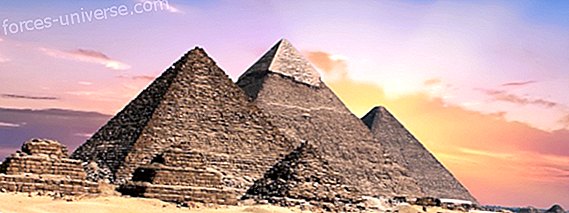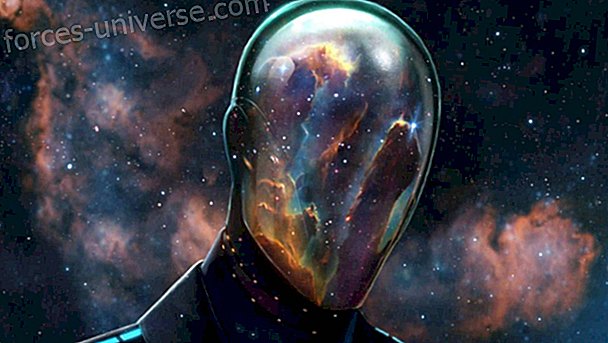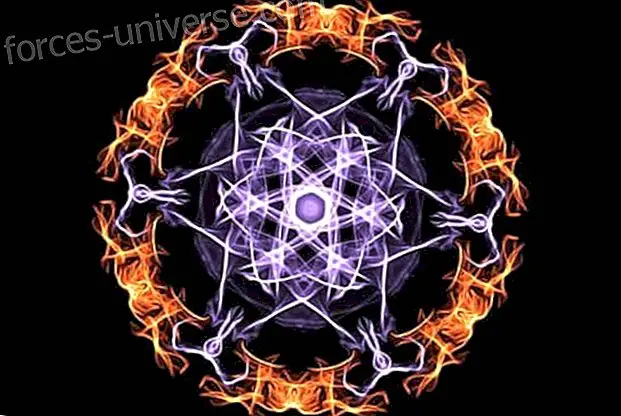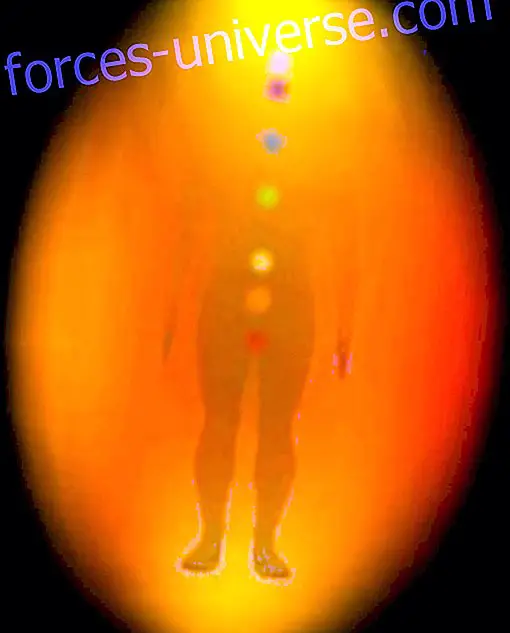Lecture given in Leipzig, March 16, 1907
 Today we are going to deal with the question of the soul of other creatures that are not man, especially whether animals have any kind of soul. These things appear as superfluous for someone who rushes in them without due attention, when notable men of the past have already dealt with these issues. Descartes, who at the beginning of the 17th century was an enthusiastic renovator of philosophy that had decayed in the Middle Ages, addressed this issue. But considering animals as machines, beings that could not be talked about as possessors of a soul, machines with reflections.
Today we are going to deal with the question of the soul of other creatures that are not man, especially whether animals have any kind of soul. These things appear as superfluous for someone who rushes in them without due attention, when notable men of the past have already dealt with these issues. Descartes, who at the beginning of the 17th century was an enthusiastic renovator of philosophy that had decayed in the Middle Ages, addressed this issue. But considering animals as machines, beings that could not be talked about as possessors of a soul, machines with reflections.
Anyone who carefully considers the life of animals can hardly share this view. We simply need to emphasize that many animals in our environment perform actions, and relate to each other, which is something difficult to imagine without the possession of a soul. An example is that of a dog's fidelity. Only with difficulty can we get carried away by the thought that he does not live in his inner being something analogous to what he lives in man. If we consider certain actions, can we ignore high spiritual activity? Consider, for example, the prey of a beaver. The development of these artistic constructions would involve a great spiritual effort in man. A deep wisdom exists, in this case, in the way in which certain beams are placed almost exactly at the right angle, for the fall of the water and according to the prevailing conditions.
Consider the ants. In every pile of them you can see something similar to an orderly and wise state of human beings, even transcending modern man. Ants are divided into three groups: workers, males and females. It can be shown that the workers are very clever, the stupidest females and the males much more. Everything in its structure is perfectly organized, the way in which they obtain everything necessary for the construction and care of the young, the way in which they conduct their collection expeditions, etc. If all this in the human state needs a soul, then we cannot deny it in these creatures. People are always satisfied with the "instinct" explanation, but they never try to think about what lies behind this "instinct."
We must now consider the other side, without ignoring the radical distinction between what man plays with his soul, and the animal with his. As an example we will start with a definitive fact. Travelers have often noticed that if they light a fire, because of the cold, when they leave, the apes come to warm up. However, they never observe that one of them has collected some wood to keep the fire. You cannot reach this combination, and that is something extremely important. They can never, by their own spiritual power, do something new, such as stir the fire, etc.
 If we clearly want to understand the animal soul we must start with its difference with the human soul. A major difference between the soul of animals and the human is that you can write a biography of each human soul, but not that of the animals. This is very important. If you ask about your interests in different beings, you will find that you have the same interest in an individual man as you have, in the case of animals, for a whole similar group of them. Think of a lion. You feel the same about the lion's grandfather, that of the lion's father, son or grandson, an idea that would appear incongruous if he applies it to the human being.
If we clearly want to understand the animal soul we must start with its difference with the human soul. A major difference between the soul of animals and the human is that you can write a biography of each human soul, but not that of the animals. This is very important. If you ask about your interests in different beings, you will find that you have the same interest in an individual man as you have, in the case of animals, for a whole similar group of them. Think of a lion. You feel the same about the lion's grandfather, that of the lion's father, son or grandson, an idea that would appear incongruous if he applies it to the human being.
It makes no sense when the owner of a dog, perhaps, maintains that he could write his dog's biography. You could also write the biography of any pet, or about the difference in the life of a pin and a needle. This is just an exaggerated distinction. Just the same thing that differentiates an entire animal species from another, is what distinguishes one individual from another.
A common soul lives in a whole group of animals. Just like his ten fingers are members of his hands, all wolves are members of the wolf group soul.
Now we must enter, with greater accuracy, the nature of the human soul, which was previously not as individualized as it is today. At one point in human evolution, man stood far from the group soul. Tacitus, one hundred years after Christ, offers us an illustration of the different tribal groups. All members of a group felt their belonging to it closely, naturally with different gradations, because everything in human evolution occurs in stages. So all the members of the group were very similar. The marked individual physiognomy is the sign of the individuality of the free soul in front of the group. You can still find, more or less, this characteristic among primitive peoples. We can firmly support the fact that physiognomic expression proves that individuality works formatively in the body. This will be increasingly marked in the future development of human races. There will come a time when racial characters will fully recede. When a soul incarnates then, in a nationality, national distinctions will disappear, and each one will always be remembered only on the basis of how he has worked in his own individuality. Previously, when marriages only took place within the tribe itself, the members of the tribe held together like the fingers of one hand, one avenging the injustice that had been caused to the other as if it had been done to him same, etc. This cohesion gradually disappeared; the greater and general aggregation of human beings caused everything individual to become the expression of soul and character. No mixing occurred, but as the distinctions disappeared, greater individualization arose.
 Let's see now, in what do the souls of human groups differ from those of animals? For this we have to return to the history of its origin.
Let's see now, in what do the souls of human groups differ from those of animals? For this we have to return to the history of its origin.
There was a time when man still did not live, as now, in his various body coverings and in the spiritual germ of his being. It was in the age of Lemuria. At that time the highest being was a kind of animal-human, with physical, etheric and astral bodies, and the tendency of an I, but not yet the I, beings who had adapted to welcome the divine germ. The soul, which now resides in the interiority of being, has not yet left the bosom of the gods, lived in an anemic spiritual stratum. Think of a glass of water with 1000 drops that form a unit, without separation between them. Take 1000 thin sponges, each being able to absorb a drop, and submerge them. Then each one will be filled with a drop. Similarly, they can think of how human coverings absorb the divine germ; This is how they first become individual and independent.
Now let's imagine that in the beginning the soul did not establish its dwelling in each being, but that a soul was distributed as a group soul among many beings. What now dwells in one then dwelt in a whole tribe. Here you must understand a new concept. Such a soul group does not die. The wonderful thing, the significant side of death is a specific privilege of the individual human soul. If a part of the group soul dies it is immediately replaced, as if it cuts the tentacle of an octopus. In this way the group soul, which does not descend to the physical plane, feels death as the loss of a member, and birth as the growth of a similar one. He does not have the privilege of death. Only when a sensitive being says: This is me, does death begin its entry into individual life. Man strives to achieve and obtain his superior life through death. Unless death was defeated, he would not obtain his superior life more than through it.
 The soul of the animals is in the astral plane, connected with each member of its group by means of a thread. In order to understand how the animal group soul arises, it is necessary to be clear about what makes the human being what he is physically. When the divine germs descended they found very different carriers. Many were specially developed for conflict; others were similarly but more developed for work, or for patience, etc., so that different bodies differed greatly in their development, even in their eternal form. The lower animals that exist today, such as insects, etc. They were already rooted in the previous incarnations of the land where they had originated. Now we are only interested in animals from the fish up. When that descent occurred in the bodies they expected, which on the outside (not on the inside) were approximately at the stage of the body of the fish, mammals still did not exist. The human being who lived then had to move half swimming, half floating, and for that purpose he had fin-like organs. That which took place in his earthly body came through the abode of the human soul. Only during the course of a long evolution his body was transformed until today, in the likeness of the divine.
The soul of the animals is in the astral plane, connected with each member of its group by means of a thread. In order to understand how the animal group soul arises, it is necessary to be clear about what makes the human being what he is physically. When the divine germs descended they found very different carriers. Many were specially developed for conflict; others were similarly but more developed for work, or for patience, etc., so that different bodies differed greatly in their development, even in their eternal form. The lower animals that exist today, such as insects, etc. They were already rooted in the previous incarnations of the land where they had originated. Now we are only interested in animals from the fish up. When that descent occurred in the bodies they expected, which on the outside (not on the inside) were approximately at the stage of the body of the fish, mammals still did not exist. The human being who lived then had to move half swimming, half floating, and for that purpose he had fin-like organs. That which took place in his earthly body came through the abode of the human soul. Only during the course of a long evolution his body was transformed until today, in the likeness of the divine.
Many things remained stationary on this long road. However, in the meantime the earth was transformed and this situation still caused a decline in the development of the bodies. Let's take two brothers; one has been transformed according to the different stages of life and the other has remained in its infantile stage. At the age of 60, however, he no longer looks like a child. In the same way the current fish have declined and seem different than they were before.
Humanity continued its development transforming itself to its body as a mammal. Everywhere, however, there are those decadent human beings who remained stationary. If it is known deeply it will be understood that all animals have gone through early stages, too early, in which they have adopted fixed forms that they should have left behind. It is as if they had crystallized throughout their evolution. The ascending development, indeed, led man to a peculiar position, in reference to certain characteristics. He lost security. Monkeys, in captivity, die soon from tuberculosis and other diseases, cannot lead a human life. Even considering their food they have a certain security. A cow in a meadow knows exactly which plants are good for her. Man no longer possesses this knowledge. You need insecurity to be able to choose freely. Your present insecurity is necessary to achieve security at higher later stages. Man has to adapt to higher stages. Thus becoming insecure is your guarantee of being independent. The permanence in security denotes something that has not advanced, from the point where the I can work in the individual being. We should ask ourselves a little about animal wisdom and also about ours. That of a single beaver is the reflection of the manual work of the group soul in the astral plane. The ant is situated at a completely different stage from that of the beaver, and much further from ours, because it separated long before the planetary condition of the earth. From a certain point of view its development has advanced further than that of man. Man thinks, feels, and wants, in a fixed way. If I see something that pleases me, I try to catch it; The idea causes the action. Without this interaction man would be very insecure. In Chela, the will, the idea and the feeling are fragmented, and are totally separated. For humanity in general, this will be achieved first in the Jupiter stage of earth evolution. But before he experiences this in the encounter with the Guardian of the Threshold that clarifies the entirety of his previous life.
 This fall in triple fragmentation has occurred prematurely in certain animal group souls. It is a fact that individual parts of a Chela's brain are differentiated, just like ants in an anthill. The ant has done it prematurely and now remains an immature smart boy. The soul group of beavers will have to rise above what they have lost; the soul of the ant has been lost once and for all, and runs entirely through other paths.
This fall in triple fragmentation has occurred prematurely in certain animal group souls. It is a fact that individual parts of a Chela's brain are differentiated, just like ants in an anthill. The ant has done it prematurely and now remains an immature smart boy. The soul group of beavers will have to rise above what they have lost; the soul of the ant has been lost once and for all, and runs entirely through other paths.
Animal souls are human souls that have become unilateral. Oken says: "Language is the ink of the fish." Naturally it should not be taken literally. However, the being in which speech characteristics have become too important remains stuck at that point. Paracelsus pronounced the deep words: If we contemplate nature, we simply see separate letters and the word they form is the human being. Imagine all the different qualities we find together in man, spread over different bodies, and then he needs a group soul. Animals are human beings who have remained unilaterally stuck in the development of their characteristics.
Man has become discoverer through his loss of security. The first element he learned to put at his service was fire. That is why he reached the first stage of civilization, which made him become a productive being. It is an encyclopedia of different animal souls.
Now, they must still be clear about one point: if they look at the lower animals they will find that they cannot directly express pain or pleasure through sound. Insects, of course, produce noises, but they do not come from your body. The hidden science here makes a decisive distinction between the sounds of animals and those that are not. But let's see, first in man, how the inner sound becomes word, speech. Even higher animals only have a unilateral sound development. At a later time, animal group souls, not individual animals, will become human beings, but totally different from the way man is constituted today. Even before Theosophy, Goethe felt this and expressed it beautifully in his "Metamorphosis of Animals"; that animals are like an incomplete, fragmented man, that the whole animal kingdom seems like it comes from the human form.
Thus man says to all animal beings (speaking of himself), "All this, compressed into one, it is you."
Question: Will there be more splits in human evolution?
Answer: Yes, and in fact it is what in Theosophy is called “progress through crises”. We are now in the Fifth Root Race. The Sixth will see another distinct race, noble and beautiful, in contrast to the decadent that will be discarded, which will be a race of horribly ugly, animal-like, sensual, vicious men that will cause much more horror than is possible in today's humanity, Because its development will be down. In Revelation it is clearly shown how this division will occur in what is called the Last Judgment. Only he who is completely disinterested will be mature for the Sixth Race. Of course, you can still continue to incarnate, but only with the goal of helping others. Many, perhaps, may find that the Judgment sounds rigorous, but we know that the choice always exists. Understand me correctly, not for reincarnation, but for the Sixth Race.
Question: Why do older people become mentally weak, even though the soul cannot change?
Answer: The soul, of course, does not change. It never descends from the stage it has already reached. But his instrument has become weak, just like a pianist who can no longer play as he did before, if he has a bad instrument. It can be said that the soul does not know beyond its own stage. Yes, the soul is seen only as it is in a physical body. You can only find the reflection of the soul, the image, in a mirror. Now the mirror fogs or breaks; can no longer reflect. Chela is really the first who is able to perceive his soul.
Rudol Steiner






